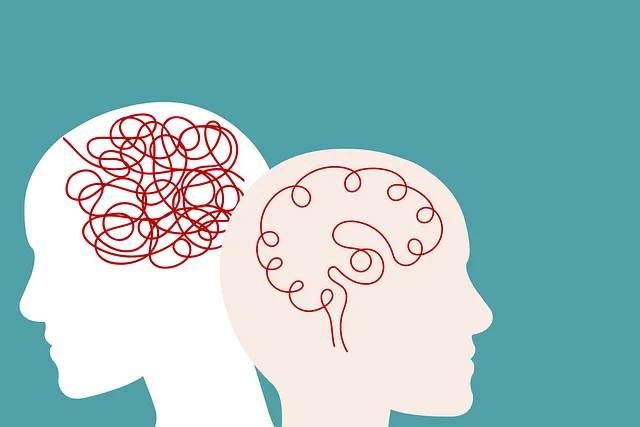Westminster residents seeking mental health services under Kaiser's coverage can benefit from social skills training, a crucial component for managing conditions like anxiety and schizophrenia. This holistic approach combines personalized therapy sessions with support groups to enhance emotional well-being, reduce stigma, and improve coping mechanisms. By integrating social skills training into their plans, Kaiser can foster better outcomes, build support networks, and encourage community outreach for at-risk populations.
Social skills training is a powerful tool for managing mental health conditions, offering individuals a chance to navigate social interactions with confidence. This article delves into the intricate relationship between social abilities and mental well-being, exploring challenges faced by those with mental health struggles in everyday conversations. We discuss effective therapies, support groups, and practical strategies to enhance communication skills and build meaningful connections. Additionally, we examine insurance coverage for such training, using Kaiser (Westminster) as a case study to understand their policies regarding mental health support.
- Understanding the Link Between Social Skills and Mental Health
- Identifying Challenges in Social Interactions for Individuals with Mental Health Conditions
- The Role of Therapy and Support Groups in Enhancing Social Skills
- Practical Strategies for Improving Communication and Relationship Building
- Insurance Coverage for Social Skills Training: A Case Study with Kaiser (Westminster)
Understanding the Link Between Social Skills and Mental Health

Social skills training plays a pivotal role in managing and improving mental health, particularly for individuals dealing with various conditions. The connection between social skills and mental wellness is intricate; effective communication, empathy, and interpersonal interactions can significantly impact an individual’s overall well-being. For instance, individuals with anxiety disorders often struggle with social situations, which can lead to isolation and a exacerbation of symptoms. By participating in social skills training, they can learn conflict resolution techniques, helping them navigate social environments more confidently.
Westminster does Kaiser cover mental health services, including such therapeutic interventions? Mental Health Policy Analysis and Advocacy highlights the importance of accessible programs like these. Moreover, reducing the stigma associated with mental illness through education and awareness campaigns is crucial. Incorporating social skills training into treatment plans can foster better coping mechanisms and enhance support networks, ultimately contributing to improved outcomes in managing mental health conditions.
Identifying Challenges in Social Interactions for Individuals with Mental Health Conditions

Individuals with mental health conditions often face unique challenges when it comes to social interactions due to the nature of their illness. These challenges can include difficulties in understanding social cues, maintaining eye contact, or engaging in conversation, which may lead to feelings of isolation and anxiety in social settings. For instance, someone with social anxiety disorder might struggle to initiate conversations, while a person with schizophrenia could misinterpret others’ intentions or statements, impacting their ability to form connections.
Westminster does Kaiser cover mental health services? This is an important question for many as it relates to accessibility and risk management planning for mental health professionals. Effective training in social skills can equip individuals with strategies to navigate these challenges, enhancing their overall well-being. Cultural sensitivity in mental healthcare practice and stress management workshops organization are key components of this training, ensuring a holistic approach to supporting those with mental health conditions in various settings.
The Role of Therapy and Support Groups in Enhancing Social Skills

Social skills training is a vital component of mental health care, often enhancing the effectiveness of traditional therapy sessions. For individuals navigating mental wellness challenges, engaging in both therapy and support groups offers a powerful one-two punch. Therapy provides personalized guidance on emotional regulation techniques and stress reduction methods tailored to their specific needs. This individualized approach equips them with tools to navigate social interactions more confidently.
Support groups, on the other hand, offer a sense of community and shared experience that can be incredibly grounding. Within these groups, members learn from one another’s journeys, fostering an environment where normalizing conversations about mental health takes center stage. The collective energy encourages open communication, empathy, and the development of social skills in a non-judgmental setting, ultimately contributing to improved mental wellness. Moreover, understanding that Kaiser covers mental health services, including therapy and support groups, as part of its Westminster plan, makes these resources more accessible for those seeking to enhance their emotional regulation and overall mental wellness.
Practical Strategies for Improving Communication and Relationship Building

Social skills training plays a pivotal role in improving communication and relationship building for individuals managing mental health conditions. At Westminster, where Kaiser’s mental health coverage is comprehensive, such programs are designed to empower individuals with practical strategies that enhance social interactions and foster supportive connections. Through role-playing exercises and group discussions, participants learn effective listening techniques, assertiveness skills, and empathy development – tools crucial for navigating personal relationships and daily communications.
These training sessions delve into the emotional healing processes, promoting resilience building within individuals coping with mental health challenges. By practicing these strategies in a structured environment, participants gain confidence to apply them in real-life scenarios, ultimately contributing to burnout prevention strategies for healthcare providers and improved overall well-being.
Insurance Coverage for Social Skills Training: A Case Study with Kaiser (Westminster)

In recent years, there’s been a growing recognition of social skills training as an essential component of mental health treatment. This shift has led to increased scrutiny regarding insurance coverage for such therapeutic interventions. A notable case study involves Kaiser Permanente (Westminster), known for its comprehensive healthcare services. The organization has shown significant interest in integrating social skills training within their mental health programs, reflecting a progressive approach to patient care.
For individuals struggling with mental health conditions, access to effective treatment is paramount. Kaiser’s potential coverage for social skills training can significantly impact the accessibility of holistic care. This not only includes traditional therapeutic methods but also innovative practices tailored to enhance emotional healing processes. Moreover, their inclusion could encourage a more inclusive Community Outreach Program Implementation, ensuring that at-risk populations receive the support they need for their mental well-being, as highlighted in the Risk Assessment for Mental Health Professionals.
Social skills training is a valuable tool in navigating the complex landscape of mental health support. By understanding the interplay between social abilities and psychological well-being, individuals can effectively manage their conditions and foster healthier relationships. As highlighted by this article, therapy, support groups, and practical communication strategies are key components in enhancing social interactions. Furthermore, with appropriate insurance coverage, such as that offered by Kaiser (Westminster), accessing these essential services becomes more feasible, potentially revolutionizing how we approach mental health care and promoting a tapestry of improved lives.






